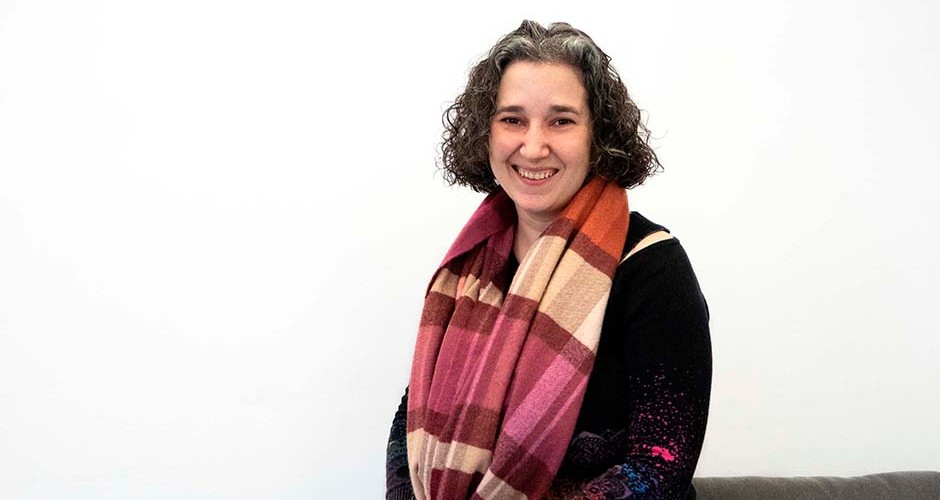Today, April 28th is the International Girls in ICT Day. This day aims to encourage new generations to study in order to work in the field of telecommunications, because it is a historically male sector.
eDiversa Group is a part of the ICT sector and we are committed to contributing to the cause. In this sense, we wanted to talk to Elena Álvarez, Project Development Manager, our female representative with more years of experience in the ICT sector. 15 years already and we hope there will be many more!
When did you first see your professional career clearly?
Since I was little, I have always been technological or scientific, you could say. In school, there were programming and electronics subjects oriented to engineering, so that’s when I knew my destiny was engineering. At the end of high school, I opted for sciences. And when it was time to choose a degree, I decided on Computers as well as Industrial, but I was interested in Computer Science, which is what I really liked.
What changes have you seen in the sector and technology since you started?
It’s been more than 20 years since I started playing with computers and these last few years, technology has improved spectacularly. What has really changed is technology and not my experience or vision on it.
Today, even if you are just a user, you have to work with a computer and therefore that I think everyone should have at least minimum knowledge. For example, when I went to school, we did all our work by hand. And now, everything is with Word and they score you for using styles to make the index automatically.
Also, even if you are a carpenter, you will have to make invoices for your customers, you will have to receive invoices from your suppliers and you will have to carry out some formalities, even with the tax authorities, so you’re going to need to use a computer.
How would you define the female presence in the ICT sector and society in general?
In recent years there has been a boom in feminism that has made us all put on purple glasses, even in universities, companies or sports federations, so everyone is trying to make the work of the female gender more visible.
The lilac look is relatively current because, for example, when I studied I didn’t see that there were any plans to promote the access for women to technical careers. And I am sure that there are now. Although they should be encouraged from primary school, it’s not in high school when you define whether you like science or literature, it’s when you are younger. I strongly believe in early initiation in programming environments, since, at the very least, it allows you to understand what they do and how the programs work and get a better understanding of your actions when you use the computer.
But by habit no emphasis is placed on this aspect and girls are not told “how smart you are” but rather “how pretty you are”, always. I know its cliché and everybody does it without realizing, but it’s true. Boys are also told how handsome they are but also how smart, fast and intelligent. Girls also but much more frequently it’s that they are pretty or something looks good on them or how well they have drawn something.
What role do women play in business?
Women have fewer opportunities to make mistakes, because if you make the slightest mistake, you are seen as not being worthy, or that it’s not your role. In these types of things, there is more lenience with men. The barriers that exist today are all the machismo, the internalized patriarchy that we all have, men and women, which often make us value the work of male and female colleagues differently.
Another problem that we women carry is motherhood, since mentally everyone attributes childcare to the mothers. And that makes most companies think of you having less availability, because as you have had a child or have a child, it seems that you don’t have as much time as a colleague who doesn’t have a child.
Where are women in the ICT sector?
In the ICT field, women play a minor role, as in all technological environments. I think it is something that has to be encouraged and, above all, we have to empower ourselves to believe that we can do it.
I think there is a feeling, or generalized thinking from girls or women that "the sector is full of men, maybe I'm not good enough, maybe they won’t consider me, maybe I'll be looked at strangely". But I can affirm that once inside the sector, male and female colleagues will be there to help, without a doubt, not to belittle or criticize.
This is why actions such as this interview are necessary to promote and give visibility to the fact that, in the world of technology, although it is obviously mostly male, there are many women and everyday there are more.
I see progress towards an egalitarian society, which implies an egalitarian sector technically speaking. Even so, it is still very difficult in the hiring process to find female colleagues who program. But there is hope. From there being next to none 20 years ago, there are now some. We have made some progress, although there is no doubt that we still have a long way to go in this area.






